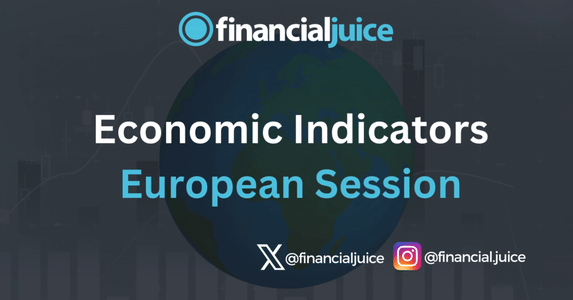
Week Ahead: Economic Indicators (EU)
Hey, Traders!
For the week beginning February 19th, here is a list of the major economic indicators being released during the European Session, with a brief synopsis of what they represent and what to possibly expect from the markets in reaction.
We don’t see any major releases on the 19th, 20th or 21st this week, hence their exclusion.
Thursday February 22nd
03:15 – 04:30 ET
Euro-Area Mfg, Services and Composite PMI (France, Germany, Eurozone, UK)
– Manufacturing
The Manufacturing Purchasing Managers’ Index (PMI) measures the activity level of purchasing managers in the manufacturing sector.
– Services
The Services Purchasing Managers’ Index (PMI) provides an estimate of service sector business activity for the preceding month by using information obtained from a representative sector survey incorporating transport and communication, financial intermediation, business services, personal services, computing and IT and hotels and restaurants.
– Composite
The Composite PMI Index measures the activity level of purchasing managers in both sectors (manufacturing and services).
What to expect:
A reading above (below) 50 signals rising (falling) activity versus the previous month and the closer to 100 (zero) the faster is activity growing (contracting).
05:00 ET
Eurozone CPI
Changes in the index provide an estimate of inflation, as targeted by the European Central Bank (ECB). Eurostat provides statistics for the EU and Eurozone aggregates, individual member states and for the major subsectors. Over the short-term, the central bank focuses on a number of core measures which seek to strip out the most volatile components and so give a much better guide to underlying developments. Amongst these, financial markets normally concentrate upon the narrowest gauge which excludes energy, food, alcohol and tobacco.
What to expect:
By tracking inflation, whether high or low, rising or falling, investors can anticipate how different types of investments will perform. Over the long run, the bond market will rally (fall) when increases in the CPI are small (large). The equity market rallies with the bond market because low inflation promises low interest rates and is good for profits.
Friday February 23rd
02:00 ET
German GDP
Gross Domestic Product (GDP) is the broadest measure of economic activity and is a key indicator of economic health. The quarterly percent changes in GDP show the growth rate of the economy as a whole.
What to expect:
A higher than expected reading should be taken as positive/bullish for the EUR, while a lower than expected reading should be taken as negative/bearish for the EUR.
04:00 ET
German IFO
– Current Conditions
The German Current Assessment rates current business conditions in Germany, without considering future expectations. It is a sub-index of the German Ifo Business Climate Index.
– Expectations
German Business Expectations rates the expectations of businesses in Germany for the following six months. It is a sub-index of the German Ifo Business Climate Index.
– Business Climate
The German Ifo Business Climate Index rates the current German business climate and measures expectations for the next six months. It is a composite index based on a survey of manufacturers, builders, wholesalers and retailers. The index is compiled by the IFO Institute for Economic Research.
What to expect:
A higher than expected reading should be taken as positive/bullish for the EUR, while a lower than expected reading should be taken as negative/bearish for the EUR.




